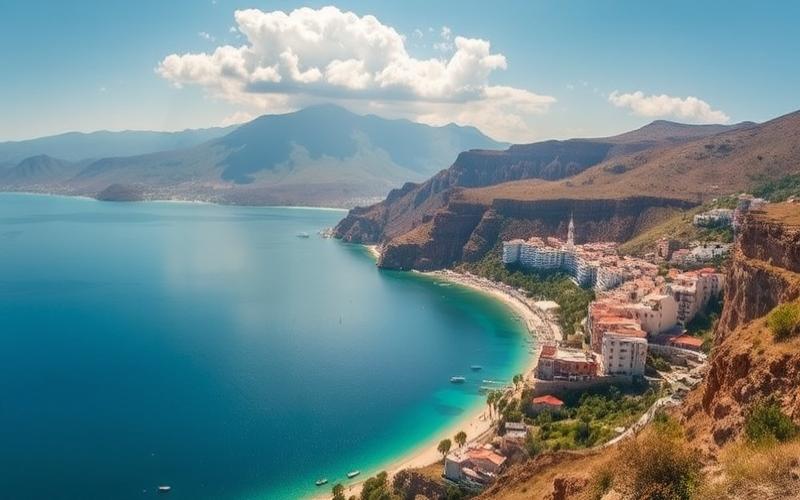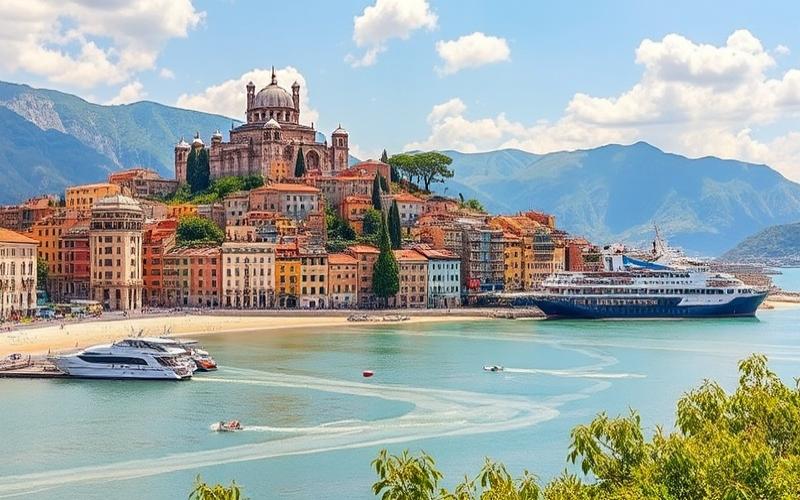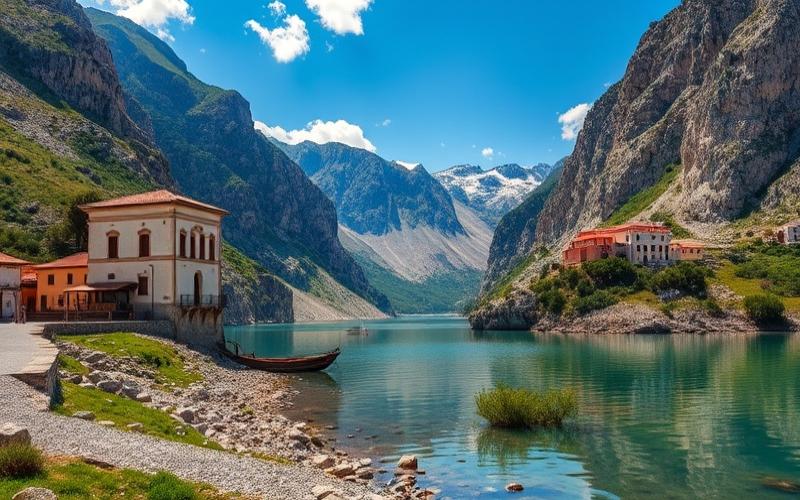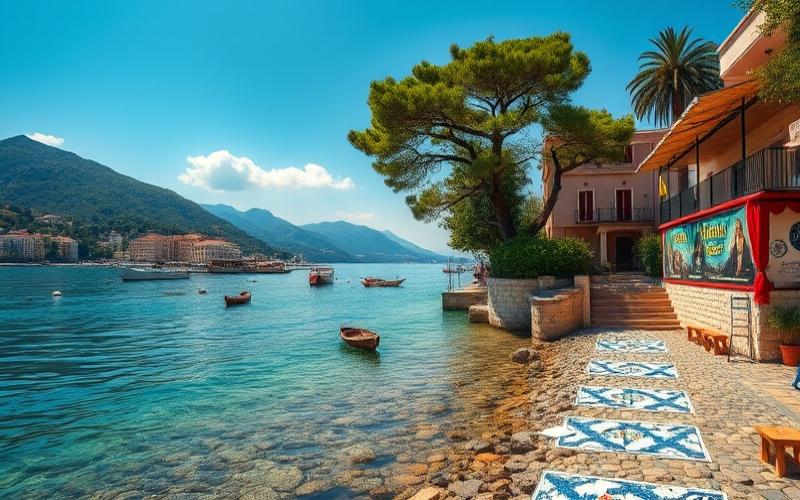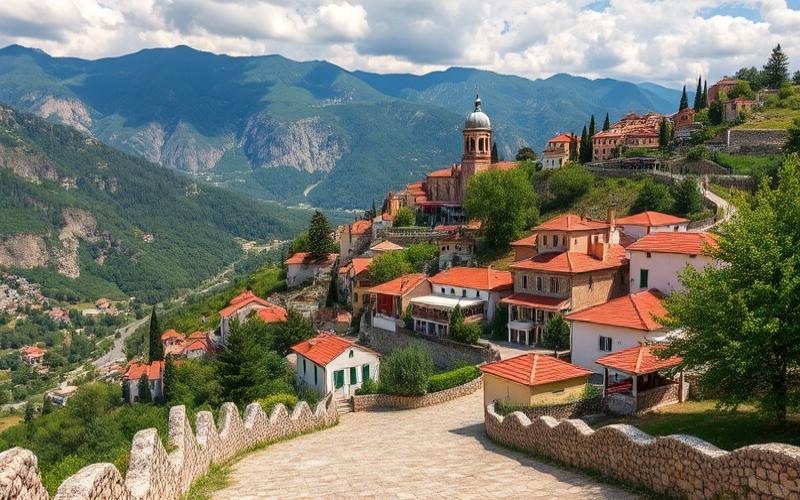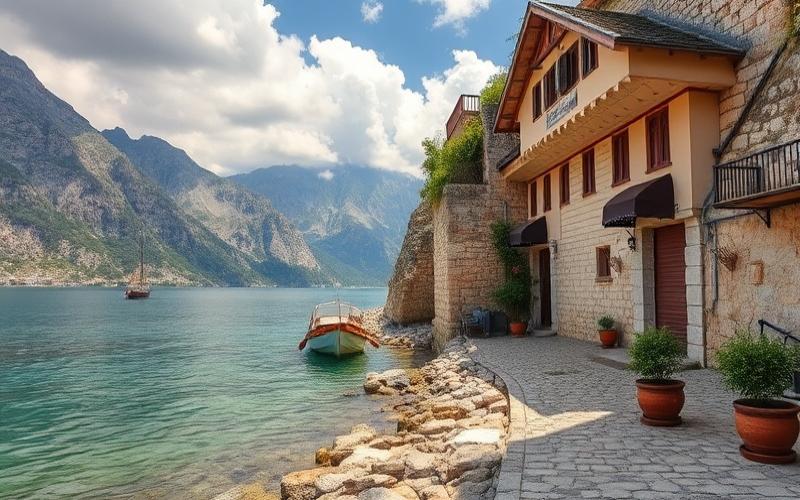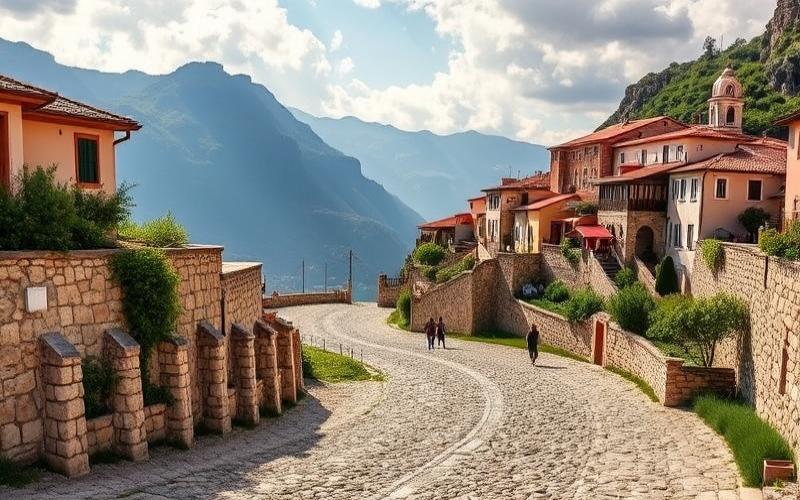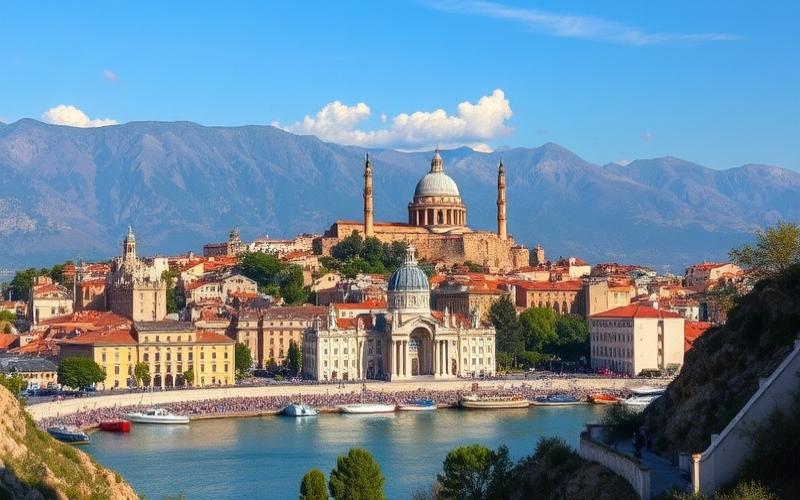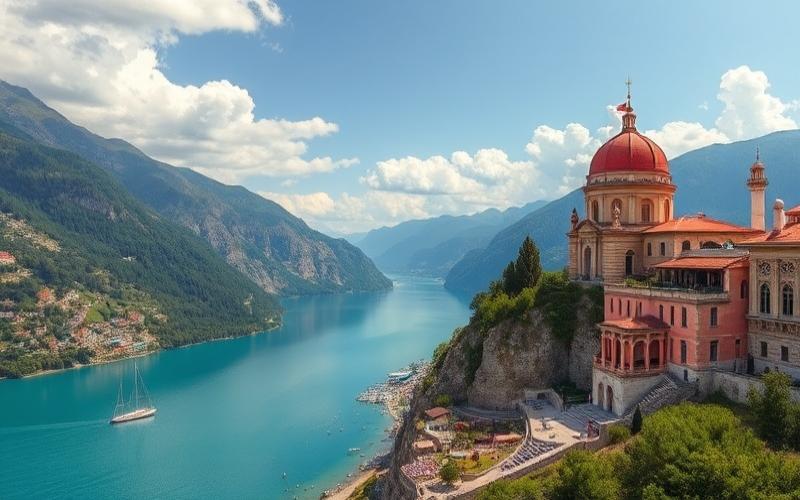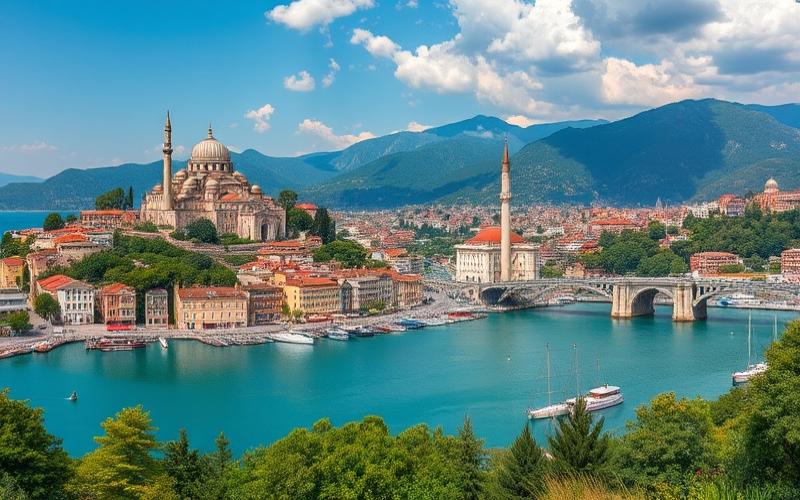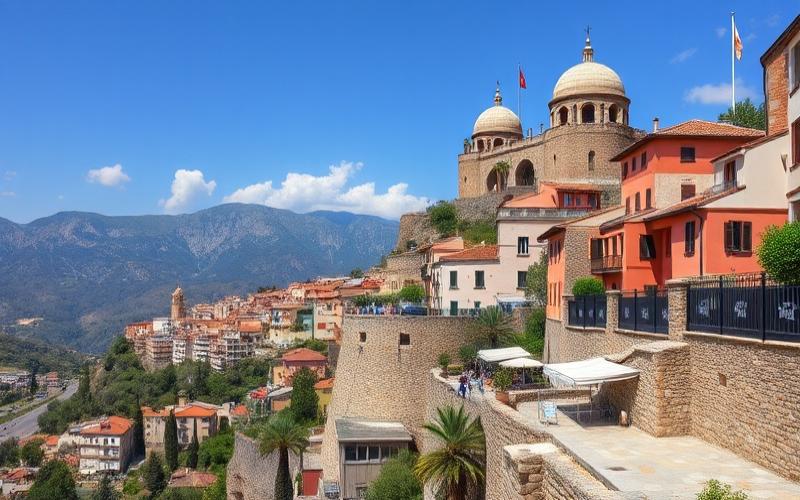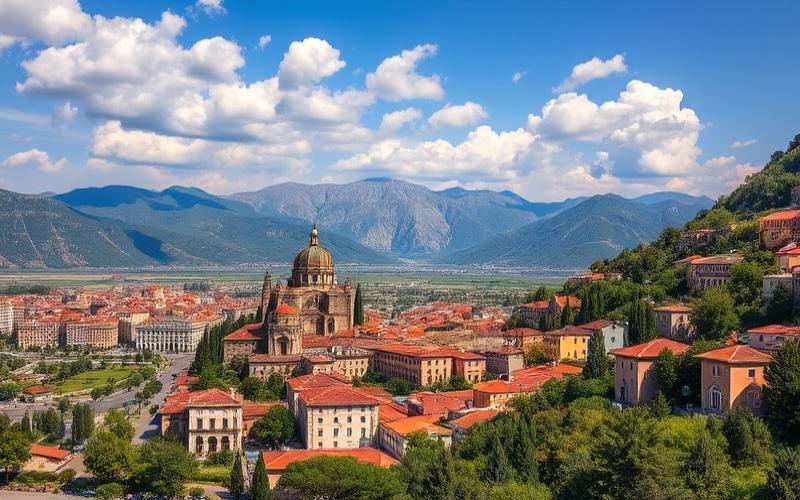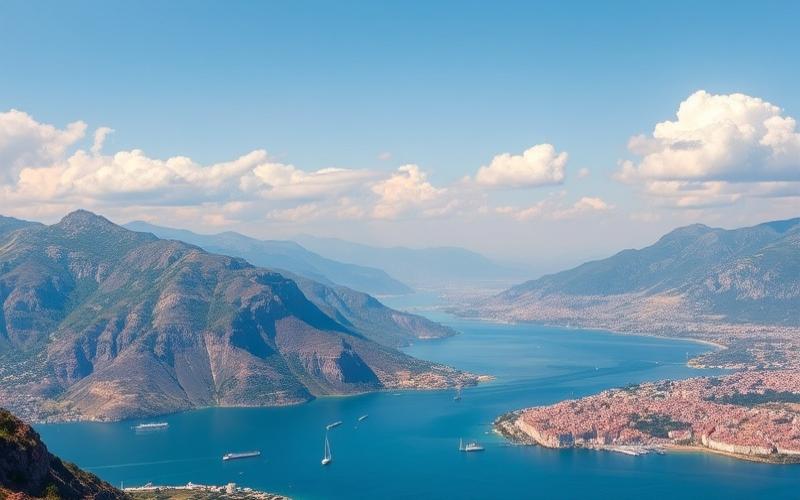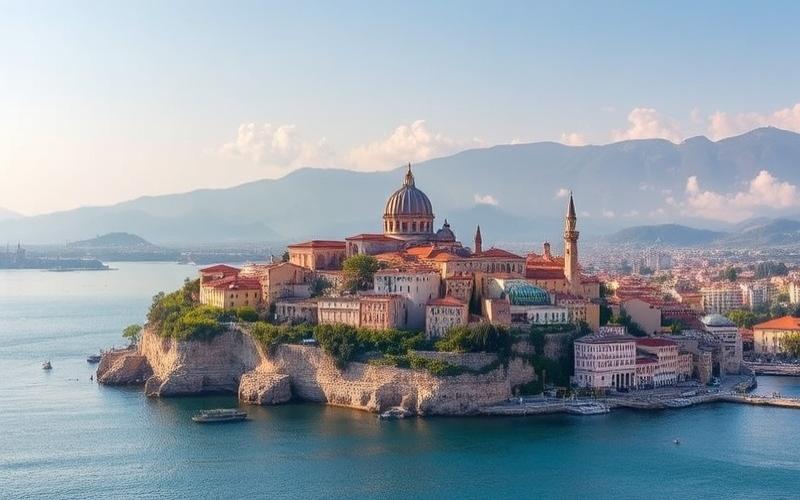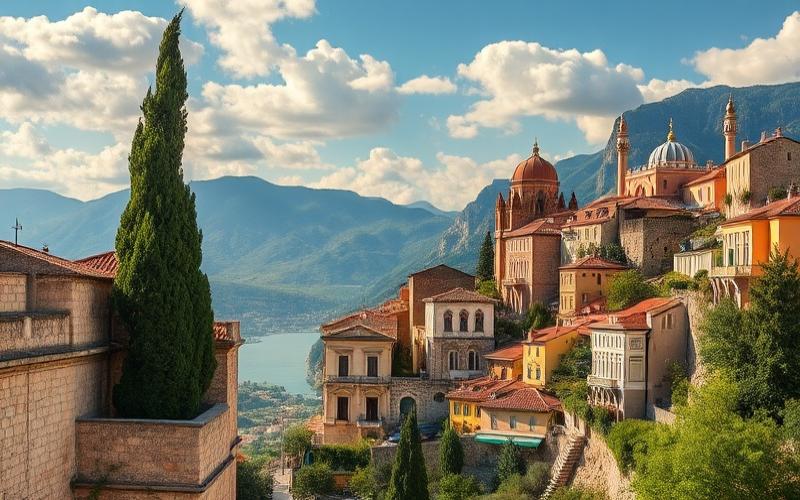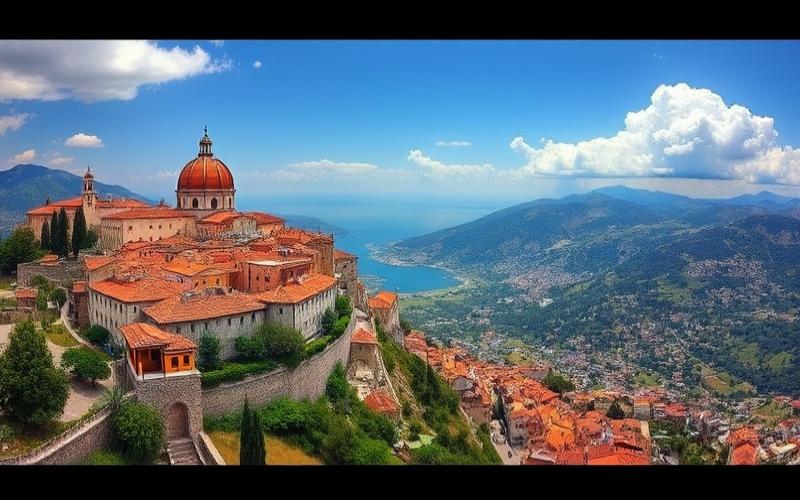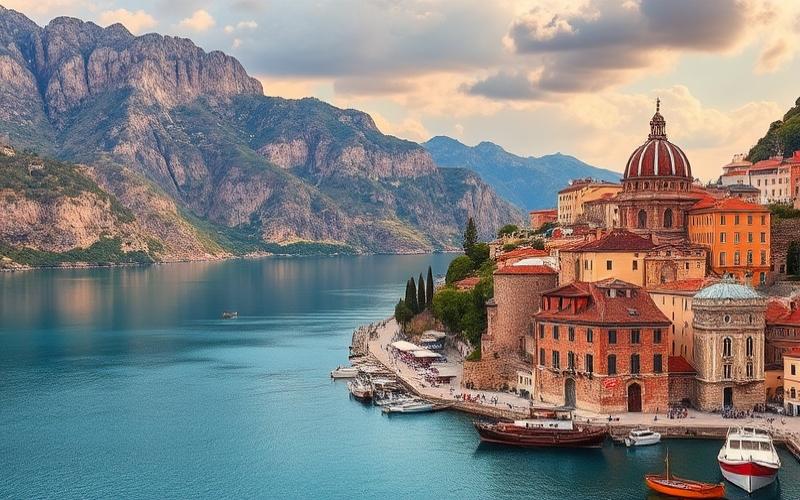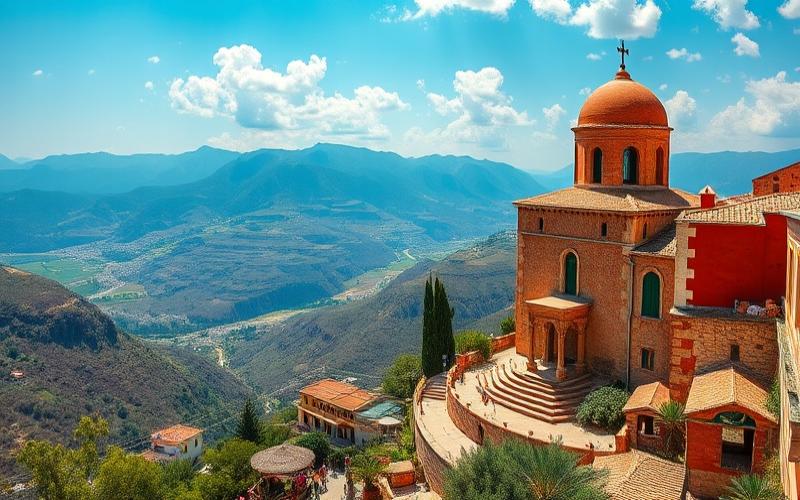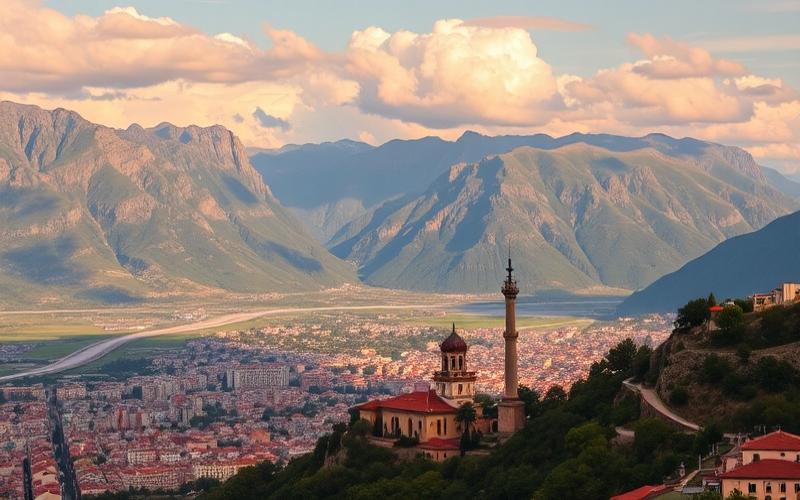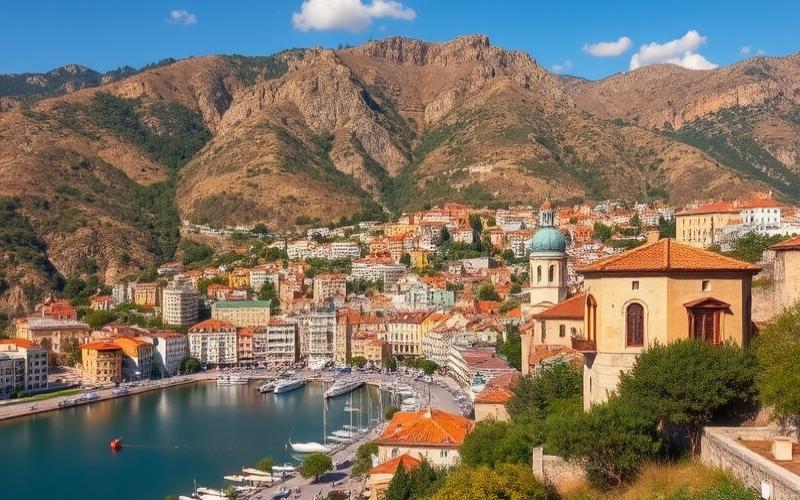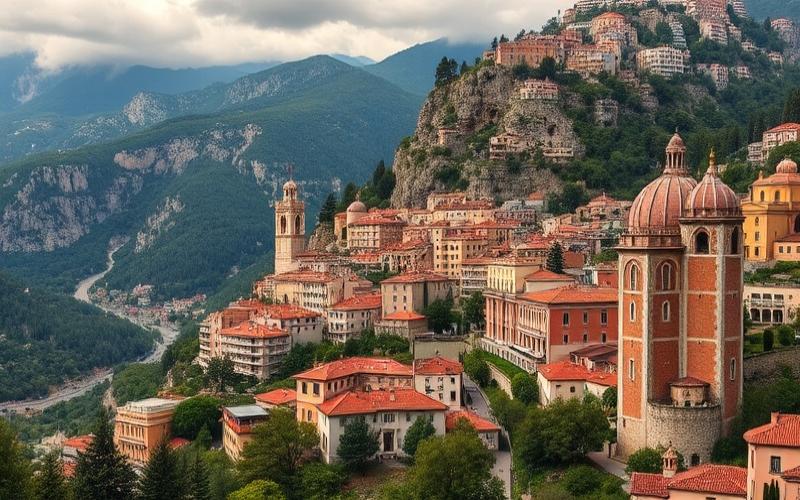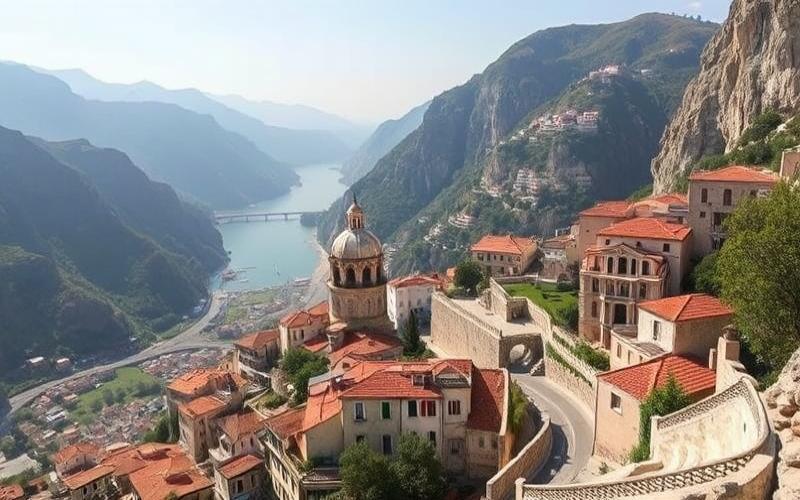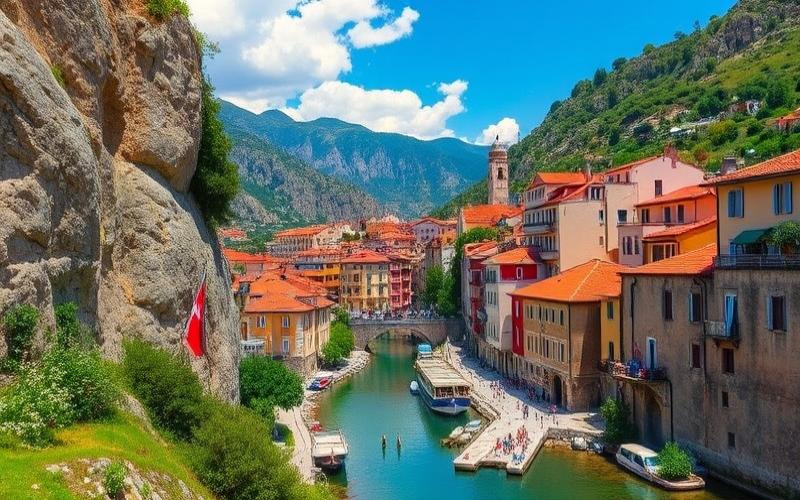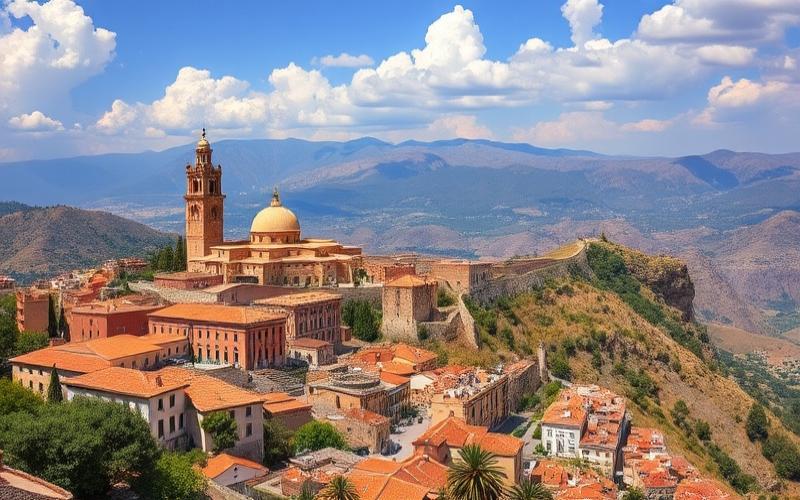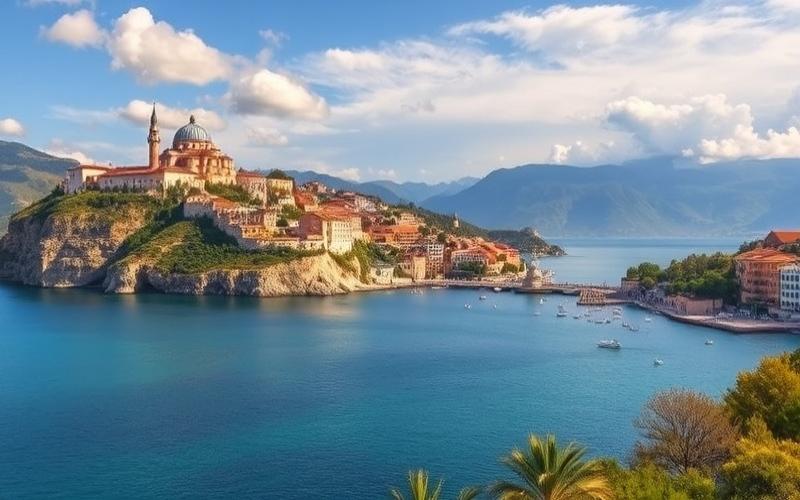
 Published on and written by Cyril Jarnias
Published on and written by Cyril Jarnias
Albania, a Balkan country with a rich historical and cultural heritage, is attracting more and more expatriates drawn by its varied landscapes, affordable cost of living, and legendary hospitality. However, settling in this still relatively unknown country requires a good understanding of its cultural particularities. Here is a comprehensive guide to help you grasp the essential cultural differences before embarking on your Albanian adventure.
Albanian Social Codes: Between Tradition and Modernity
Albanian society is a fascinating blend of age-old traditions and aspirations toward modernity. To navigate this unique social context with ease, it’s crucial to understand certain fundamental aspects of Albanian culture.
Respect for elders and hierarchy is deeply ingrained in the Albanian mentality. Elderly people are treated with great deference, and it’s common to see younger people giving up their seats on public transportation or helping them with daily tasks. In the professional environment, this hierarchy translates into marked respect for superiors and often centralized decision-making.
Albanian hospitality is renowned and constitutes a pillar of local culture. Albanians are known for their generosity and warm welcome toward foreigners. It’s not uncommon for an Albanian to spontaneously invite a visitor to their home to share a meal or coffee. This hospitality is often accompanied by genuine curiosity about foreigners, who may be questioned about their personal and professional lives.
Family holds a central place in Albanian society. Family ties are extremely strong, and it’s common to see multiple generations living under the same roof or in close proximity. Important decisions are often made in consultation with the extended family, and family obligations can sometimes take precedence over professional commitments.
Gender equality is progressing in Albania, but disparities persist, particularly in rural areas. In major cities like Tirana, women are increasingly occupying positions of responsibility, but traditional roles remain prevalent in certain circles. Expatriates, particularly women, should be aware of these nuances to adjust their behavior accordingly.
Good to know:
Albanian society is undergoing significant transformation, combining respect for traditions with openness to modernity. Hospitality, respect for elders, and the importance of family are cardinal values to understand for a good grasp of the local culture.
Rituals and Customs: A Deep Dive into Albanian Identity
Albanian traditions and customs reflect a rich and eventful history. Understanding these cultural practices will help you integrate better and avoid faux pas.
Festivals and celebrations hold an important place in the Albanian calendar. Among the most significant are:
- New Year’s (Viti i Ri), celebrated lavishly on January 1st
- Independence Day (Dita e Pavarësisë), on November 28th
- Religious holidays like Easter for Christians and Eid for Muslims
These occasions are perfect for family gatherings and public festivities. It’s common for shops and government offices to close on these holidays.
The Albanian wedding is a colorful celebration that can last several days. Traditions vary by region, but some elements are common: the engagement ceremony (fejesa), the exchange of gifts between families, and the grand wedding party punctuated by traditional dances like the valle. If you’re invited to an Albanian wedding, expect a magnificent celebration and be prepared to dance!
Albanian cuisine is a central element of the country’s culture. Meals are moments of sharing and conviviality. Among the emblematic dishes are byrek (stuffed pastry), tavë kosi (lamb with yogurt), and fërgesë (a dish made with peppers and cheese). Raki, the local brandy, is often served as an aperitif. It’s considered good manners to taste all the dishes offered and to compliment your host’s cooking.
Coffee holds a special place in Albanian culture. The tradition of Turkish coffee, a legacy of the Ottoman Empire, remains very present. Having coffee is often an opportunity for long discussions and socializing. Don’t be surprised if a simple invitation for coffee turns into a conversation lasting several hours!
Good to know:
Albanian traditions are vibrant and shape social life. Participating in local festivals, appreciating the gastronomy, and taking time to share coffee are all ways to immerse yourself in the country’s culture and build connections with the local population.
To integrate harmoniously into Albanian society, it’s essential to know certain codes of conduct and avoid cultural missteps. Here are some practical tips to help you navigate this new environment with ease.
Non-verbal communication plays an important role in social interactions in Albania. Unlike many Western countries, nodding your head up and down means “no,” while shaking it from side to side means “yes.” This gesture can be confusing for newcomers, so it’s important to pay attention to avoid misunderstandings.
Respect for personal space may differ from Western norms. Albanians tend to stand closer during conversations, and physical contact like hugs or kisses is common among friends. However, it’s better to wait for your conversation partner to initiate this type of contact, especially during first meetings.
In professional settings, punctuality is appreciated, but it’s important to know that the relationship with time can be more flexible than in Western Europe or North America. It’s common for meetings to start slightly late and for discussions to extend beyond the allotted time. Be patient and adapt to this more relaxed pace.
Dress code deserves particular attention. In major cities like Tirana, clothing style is generally casual and modern. However, in rural areas or when visiting religious sites, it’s recommended to opt for more conservative attire. Women, in particular, should avoid overly revealing clothing in these contexts.
During meals or visits to someone’s home, it’s customary to bring a small gift to your hosts, such as flowers, pastries, or a bottle of wine. Refusing offered food or drink can be perceived as impolite. If you cannot consume what is offered, explain politely and thank your host for their hospitality.
Religion, although Albania is a secular state, remains a sensitive topic. The country has a Muslim majority, but also Orthodox and Catholic Christian communities. It’s preferable to avoid discussions about religion or politics, especially during initial meetings, unless your conversation partner brings up these topics themselves.
Finally, although many Albanians speak English, especially in major cities and among younger generations, learning a few words of Albanian will be greatly appreciated. Simple expressions like “faleminderit” (thank you) or “mirëdita” (hello) can greatly facilitate your daily interactions and show your interest in the local culture.
Good to know:
The key to avoiding cultural faux pas in Albania lies in observation, adaptation, and respect for local customs. Be open, patient, and don’t hesitate to ask locals for advice if in doubt. Your effort to understand and respect Albanian culture will always be appreciated.
The Art of Living the Albanian Way: Between Modernity and Traditions
Albania is a country in rapid transformation, where age-old traditions coexist with aspirations toward modernity. Understanding this subtle balance will help you better integrate into your new life as an expatriate.
The Albanian pace of life may surprise newcomers. In major cities like Tirana, economic dynamism coexists with a more relaxed way of life. Workdays generally start early, but it’s not uncommon to see cafes and restaurants lively until late in the evening. The siesta, although less practiced than before, remains a habit in some regions, particularly during hot summer days.
Social life occupies a central place in daily Albanian life. Cafes and bars are preferred meeting places, where friends or colleagues gather to chat over an espresso or raki. Don’t be surprised if these moments of conviviality stretch on: in Albania, taking time to cultivate social relationships is considered essential.
Albanian hospitality, already mentioned, also manifests in how people occupy public space. It’s common to see groups of friends or family occupying squares and parks for long conversations or impromptu picnics. This conviviality extends to foreigners, who are often invited to join these informal gatherings.
The bazaar culture remains vibrant in Albania. Open-air markets are lively places where you can find fresh local products and where bargaining is an integral part of the shopping experience. Even though modern supermarkets are developing in major cities, many Albanians still prefer to shop in these traditional markets.
Attachment to traditions is also evident in arts and crafts. Traditional music and dance, folk costumes, and local crafts (carpets, embroidery, wooden objects) still hold an important place in Albanian culture. Participating in local festivals or visiting artisan workshops is an excellent way to immerse yourself in this cultural richness.
However, Albania is also decidedly forward-looking. The country is experiencing rapid development, particularly in the tourism and technology sectors. Young Albanians, in particular, embrace modernity while remaining attached to their roots. This duality is reflected in urban architecture, where historical buildings and contemporary constructions coexist.
Good to know:
The Albanian way of life is a unique blend of ancestral traditions and openness to modernity. As an expatriate, adopting this pace of life, participating in local social life, and showing interest in traditions while embracing the country’s modern aspects will allow you to fully experience the Albanian adventure.
Conclusion: Embracing Albanian Culture for a Successful Expatriation
Expatriating to Albania offers a unique opportunity to discover a country rich in history and traditions, while witnessing its rapid evolution. The key to successful integration lies in your ability to understand and respect the cultural nuances that make this Balkan country special.
Open-mindedness and patience are your best allies in this adventure. The cultural differences you encounter, whether in social codes, traditions, or pace of life, are all opportunities to enrich your experience and understanding of the world.
Remember that adaptation is a process that takes time. It’s normal to sometimes experience culture shock or moments of frustration. In those moments, remind yourself that every challenge is an opportunity for learning and personal growth.
Finally, don’t hesitate to get involved in local life. Participate in cultural events, learn the language, build friendships with Albanians. Your effort to understand and appreciate Albanian culture will always be recognized and appreciated by your hosts.
Albania, with its rich history, vibrant culture, and welcoming people, offers you a unique expatriation experience. By fully embracing this culture, you won’t just be living in Albania—you’ll be experiencing Albania in all its splendor.
Disclaimer: The information provided on this website is for informational purposes only and does not constitute financial, legal, or professional advice. We encourage you to consult qualified experts before making any investment, real estate, or expatriation decisions. Although we strive to maintain up-to-date and accurate information, we do not guarantee the completeness, accuracy, or timeliness of the proposed content. As investment and expatriation involve risks, we disclaim any liability for potential losses or damages arising from the use of this site. Your use of this site confirms your acceptance of these terms and your understanding of the associated risks.

